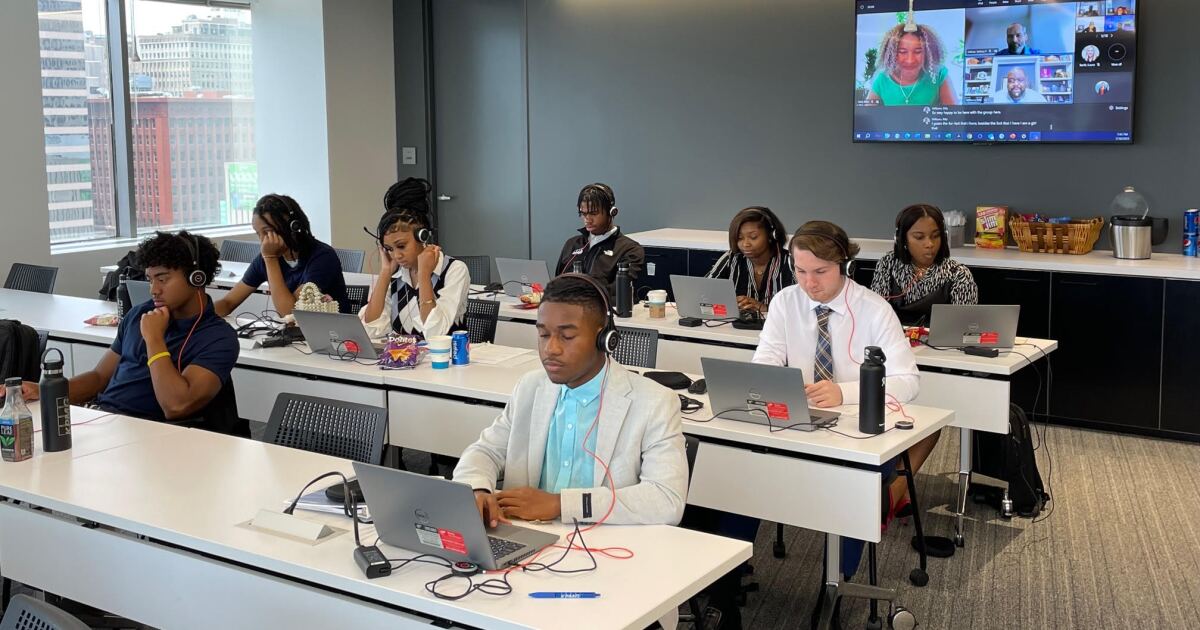The Institute of Management Accountants’ chair for fiscal year 2024, Richard Brady, is helping the organization as it transitions from its longtime president and CEO, Jeff Thomson, to a new one, Mike DePrisco.
“It’s an absolute honor to be the chair of the global board of directors of IMA,” he said. “I’ve been a member of IMA for well over 20 years and came on the board back in 2018. I served on various committees. It really is a true highlight for me to be the chair.”
Brady, who is CEO of the American Society of Military Comptrollers, recently began chairing the IMA’s board of directors for the fiscal year ending June 30, 2024 (see story). He will be helping facilitate the organization’s continuity under a new leader.
“This is an interesting year, a year of transitions in many respects from an organizational perspective,” he said. “We’ve got a new CEO at IMA. Part of my focus this year as chair is making sure we’ve got a smooth transition from Jeff Thomson to Mike DePrisco. We’re very fortunate to have had Jeff for almost 15 years. He did tremendous things for IMA, but we want to make sure we’re setting up Mike for success as well, so I want to make sure that this transition goes smoothly and we establish Mike as the new face of IMA going forward. We’re going to work very closely with Mike to continue to transform IMA and not only prepare it but all of our 140,000 members for the future.”

With all the changes going on in the accounting profession, he believes the IMA will need to adjust its governance model, business model and business processes to reflect those changes. The organization went through a restructuring and layoffs last year ahead of announcing DePrisco’s selection as its new leader (see story).
Brady sees several areas for improvement at the organization. “From the governance perspective, we’re going to be taking a look at our technical and advisory committees this year,” he said. “We’ve got a number of technical advisory committees that support the senior leadership team, but also the global board of directors.”
He and the other board members will be seeing whether there are any overlaps and gaps where it may need a new technical advisory committee or where it can combine some of the existing technical advisory committees.
“That’s really forward looking, making sure that we’ve got the right committees and volunteer opportunities for our members for the future, and alignment with the strategic direction that Mike wants to take the organization,” said Brady.
From the business model perspective, the organization is taking a hard look at the range of products and services offered to members. “There are a number of areas that we’re moving into — ESG, sustainability, digital transformation — and building out products in that area,” said Brady. “It’s really all about upskilling the workforce to prepare it for the future of work in finance and accounting to ensure that they’re prepared to be strategists and catalysts within their organization.”
The IMA is also looking at how to help its members better understand the changing regulations in finance and accounting, while also reexamining the certifications it offers like the Certified Management Accountant and Certified in Strategy and Competitive Analysis credentials.
“There’s still a great need for test-based certification for the accounting and finance profession and for other professions as well,” said Brady. “We’re taking a look at the CMA and the CSCA to make sure that they are still up to date and relevant. There have been some changes recently with the CSCA, allowing it to be offered to people who hold other certifications, other than just the CMA. We’re looking at the various products where we have educational offerings and certifications, and certificates will definitely be part of that mix.”
Brady sees ways for the IMA to help improve the pipeline of young accountants coming into the profession. He believes the accounting profession needs to consider all of the various solutions that have been proposed such as increasing pay, diversity and work-life balance in the profession or reducing the educational requirements.
“It’s not one of those things, it’s truly all of those things that are contributing to the pipeline challenge,” he said. “It’s a multivariate problem, and it’s going to take the collective efforts of associations like IMA and other associations like AAA, IIA and AICPA working together with the corporations and the academic community to solve this. If you’re just looking for a single solution, you may be able to solve the near-term problem, but you’re never really going to solve the long-term problem. A lot of that comes down to the narrative around what accounting and finance professionals do today, and how it really is data driven, and how accountants and financial professionals working inside a company, not only can have an impact on their company’s bottom line, but have a positive impact on your company’s bottom line, you improve the community in which you work and ultimately improve society. If you look at what the early careerist wants today, the young men and women in college want to have an impact on society. I think we’ve got a great story to tell here. We just need to do a better job of it and we need to work together in doing that.”
He believes the accounting profession will be able to benefit from the use of artificial intelligence, despite concerns about programs like OpenAI’s ChatGPT and Google’s Bard taking away jobs from accountants, and he dismissed concerns that they might be used to help pass certification tests as they seem to be able to do with the CPA exam.
“The technology is not necessarily new with generative AI, but the capabilities of it have increased exponentially over the last six months,” said Brady. “We’re seeing that firsthand. Everybody needs to quickly adjust. I am as equally intrigued by it as I am scared to death of it, in not necessarily a bad way. Just understanding some of the challenges with it, making sure it hasn’t been oversold initially. Generative AI is here to stay, and it is going to change the profession. In the near term, you’re still going to need a human in the loop, even when you’re using it at a very small scale, to make sure that the results that it’s producing are what you’re looking for. But over time, that will change. I like to look at these technologies like generative AI, and we talked about blockchain a decade ago, as really opportunities for the profession, not something to be scared of, or run away from or think that the bots are all going to take our job, but a new technology that we can embrace, that’s going to help drive down cost and increase performance of our organizations. That’s really what it’s about.”
He pointed out that the Big Four accounting firms are already leveraging AI to save money at a time when their profits are being squeezed. “Here’s a perfect opportunity for them to lean forward a little bit with generative AI and look for opportunities with it,” said Brady. “But if you’re going to do that, you need a skilled workforce. As we talk about digital transformation, and these technologies, professional associations like IMA do play a critical role in assisting companies in upskilling their workforce.”
As CEO of the American Society of Military Comptrollers, he sees some ways management accountants can learn from the military sector’s experiences.
“There are a lot of similar challenges within the profession,” said Brady. “A lot of times it comes down to the adoption of technology and the acceptance of change. I’m not going to sit here and lie to you and tell you the military has got it figured out. The defense sector has similar challenges as the private sector does. But change is a factor of life. You can look at it as just a challenge, as something to avoid, or as an opportunity, and that’s really what we’re trying to do at ASMC. We have the same conversations about data analytics, data visualization and decision support, and how the nature of finance and accounting is changing. When I came into the profession, what accountants did every day was we captured, recorded and reported financial information. Well, you’ve got systems that do all that for you today. That opens up the door for us to be doing higher value-added activities in analysis, scenario building and scenario planning. In many respects, the military has a lot of history and experience when it comes to operational planning and operational scenarios. Now, translating that into financial terms, it’s an area that we haven’t worked in a lot. But just like the private sector, we have the opportunity to do it. That’s where we need to be moving people. But workforces can get comfortable with what they know and what they’ve been trained to do and what they’ve done for a long time. We need to move them out of that comfort zone, because there are higher value-added activities that they can be engaged in.”
The Department of Defense has faced perennial challenges in getting a clean audit opinion from the Government Accountability Office, and it recently admitted to a $6 billion accounting error that uncovered billions more dollars it could spend on providing military aid to Ukraine (see story).
“I’ve been involved in the DoD audit when I was in the military,” said Brady. “It is very complex, and just understanding the size and scope of the Department of Defense, there’s no other organization like it. At the same time, there’s no excuse. The Department of Defense does need to move toward a clean audit opinion. It’s been directed in law, and they need to be moving toward that. I believe they’ve got a good plan in place. They just need to continue to commit the resources to achieving it, and understanding the value of that. When you go through the process of an audit, you learn a lot more about your operations and ways to increase operational efficiency. Then once you have a clean audit, you’ve got better data in which to make decisions from, so there are incredible benefits in the Department of Defense, as we’ve seen every other agency in government has achieved. There are a lot of benefits in achieving it, but it is going to take some time just because of the nature of the audit and the size and scope of the Department of Defense.”




